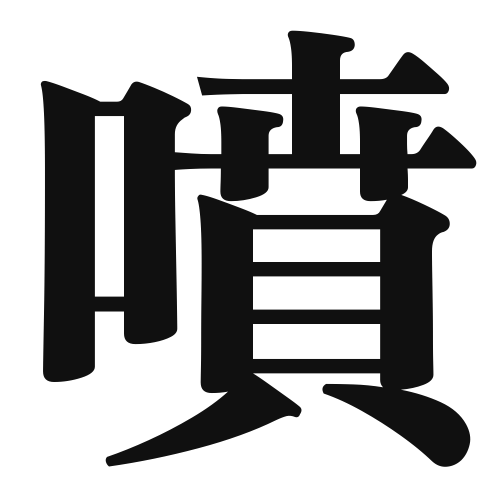1. Overview of Meaning
The kanji “噴” (pronounced “fun”) means “to spout” or “to erupt.” It is often used to describe the action of something being forcefully expelled, such as water from a fountain or steam from a volcano.
2. Formation and Radical
Formation of the Kanji: The kanji “噴” is a phonetic compound (形声文字) that combines the radical for “mouth” (口) with a phonetic component that suggests the sound or action associated with spouting.
Radical: The radical of “噴” is 口 (kuchi), which means “mouth.” This radical is often associated with actions related to speaking or expelling something.
3. Examples of Usage
Common Words and Phrases:
- 噴水 (ふんすい, funsui) – fountain
- 噴火 (ふんか, funka) – volcanic eruption
Example Sentences in Daily Conversation:
- 公園の噴水はとても美しいです。 (こうえんのふんすいはとてもびじんです。) – The fountain in the park is very beautiful.
- 火山が噴火しました。 (かざんがふんかしました。) – The volcano erupted.
4. Synonyms and Antonyms
Similar Kanji:
- 吹 (ふく, fuku) – to blow; this kanji implies a gentler action compared to “噴,” which suggests a more forceful expulsion.
Antonyms:
- 吸 (すう, suu) – to suck; this kanji represents the opposite action of drawing something in rather than expelling it.
5. Cultural and Historical Background
Relation to Japanese Culture: The concept of “噴” is often associated with natural phenomena, such as hot springs and volcanic activity, which are significant in Japanese culture due to the country’s geological features.
Proverbs and Idioms: There are not many specific proverbs that use “噴,” but it is often used in contexts discussing nature and the power of natural forces, reflecting the Japanese appreciation for the environment.
